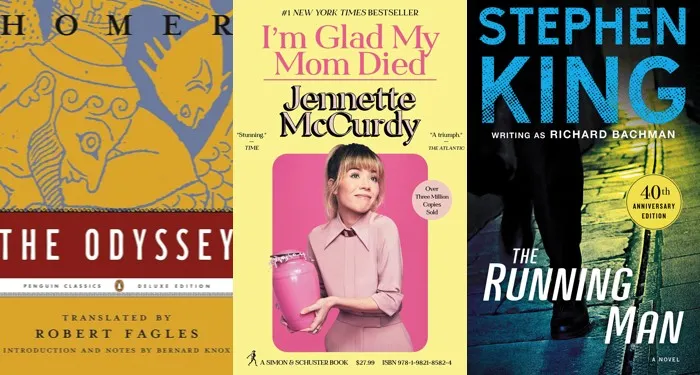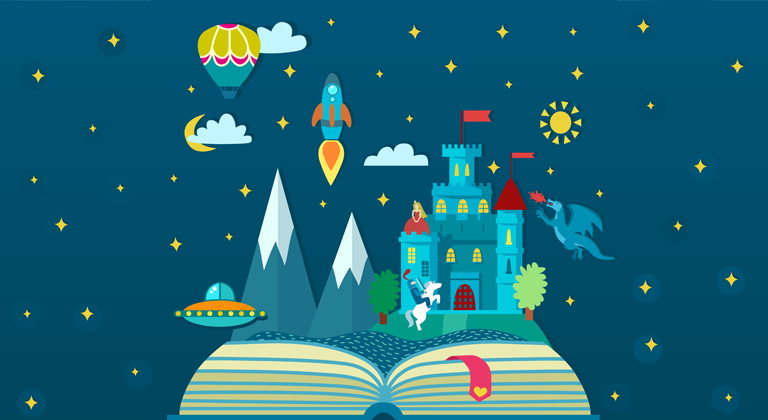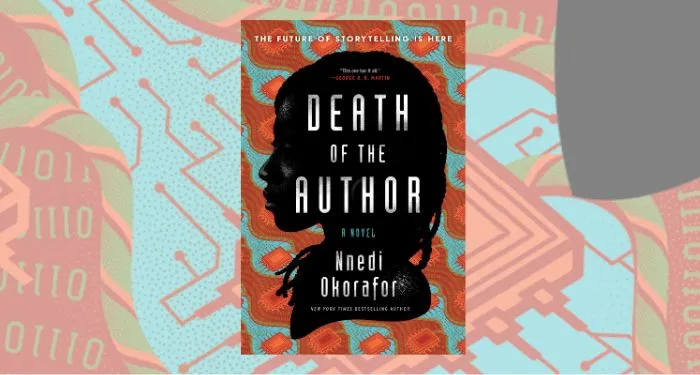Leah Rachel von Essen reviews genre-bending fiction for Booklist, and writes regularly as a senior contributor at Book Riot. Her blog While Reading and Walking has over 10,000 dedicated followers over several social media outlets, including Instagram. She writes passionately about books in translation, chronic illness and bias in healthcare, queer books, twisty SFF, and magical realism and folklore. She was one of a select few bookstagrammers named to NewCity’s Chicago Lit50 in 2022. She is an avid traveler, a passionate fan of women’s basketball and soccer, and a lifelong learner. Twitter: @reading_while
Recently, to readers’ dismay, an AI prompt asking for a rewrite in another author’s voice was accidentally left in the published version of Darkhollow Academy: Year 2, a reverse harem romance by Lena McDonald (as discovered by users on Reddit and reported by Futurism). This was not only a blatant attempt at plagiarizing another romance and fantasy writer’s style, but also raised the question of how much of this book could have been written by AI in the first place. Several other writers have been caught leaving in prompts too (which, putting aside the AI use, doesn’t speak well for their editing).
In recent years, there’s been an incredible resurgence of indie romance and romantasy that’s been self-published and promoted on TikTok or other platforms, helping lesser-known writers get noticed and even skyrocketing them into traditional publishing.
A study done by Christine Larson, a journalism professor at University of Colorado, Boulder, shows that romance writers have been thriving in the self-publishing era, raising romance authors’ median income, particularly women of color, even as general authors’ median incomes are going down. Romances featuring queer protagonists and women of color have surged in the freedom that self-publishing provides. And new, thriving subgenres like romantasy have been largely driven by self-published authors using BookTok and other vehicles to attract readers.
But if readers continue to discover AI prompts lying around, authors worry that they will no longer trust self-published works.
AI-generated books can be easily created and uploaded, and they’re flooding search engines—making it so that real-life authors, particularly self-published ones, are difficult to find, drowned out by books that aren’t written by humans. And now, some users are using AI to clone real-life books, and even generating and publishing books falsely attributed to trusted authors’ names.
Book Deals
Sign up for our Book Deals newsletter and get up to 80% off books you actually want to read.
Amazon resisted setting limits on AI-generated works at first, but did add some restrictions, such as a limit on the number of books each user can publish in one day. Still, Kindle Unlimited pays authors based on pages read rather than on each ebook’s sale. That used to benefit authors of self-published works, but as AI-generated books flood the Kindle Unlimited feed and even its bestsellers list, will readers keep finding lesser-known works? Will they download pirated and cloned versions of books instead of the original? And most of all, will they still consider it worthwhile to pay for a library that’s increasingly flooded by books that aren’t written by humans?
While there is a requirement to disclose AI usage to Kindle, that disclosure is not made to users. The very minimal good news is that some readers have put together helpful guides on how to spot these AI-generated books, but as many readers take a stand against AI and AI-generated works due to issues of plagiarism, climate change, and more, Kindle Unlimited will continue to be caught in the middle unless Amazon puts stricter rules and broader disclosures in place.
The following comes to you from the Editorial Desk.
This week, we’re highlighting a post discussing becoming a reader as an adult. Whether you’ve never been a big reader or lost your reading spark along the way, these tips and tricks will help you get into books.
Read on for an excerpt, and consider becoming an All Access member for similar thoughtful and bookish posts.
Some people are book nerds from the start (myself included), but that’s not the case for everyone. When I was in college, my partner didn’t see himself as a reader, even though he read more in magazines each week than I did in books. One day, he told me he felt like reading a book and asked if I could recommend one to him, please?
Y’all: the pressure was real. I suspected that finding a good match might ignite something for him, but choosing poorly could further alienate him from the world of books.
This story has a happy ending. I set him up on a book date with a popular sci-fi read that appealed to his logical mind and love of adventure. He’s never looked back. Now he reads all kinds of books I’d never think to pick up, and it’s pretty cool to see how different our reading tastes are.
So, how do you get into reading? How does one simply begin reading as an adult? There are so many books published annually–estimates range from a few hundred thousand to a few million, depending on whether or not you include self-published books and audiobooks. How can an aspiring reader find a book that works for them?
Don’t let the numbers intimidate you. Here are some pointers to help you get started.
Sign up to become an All Access member for only $6/month and then click here to read the full, unlocked article. Level up your reading life with All Access membership and explore a full library of exclusive bonus content, including must-reads, deep dives, and reading challenge recommendations.



















 English (US) ·
English (US) ·